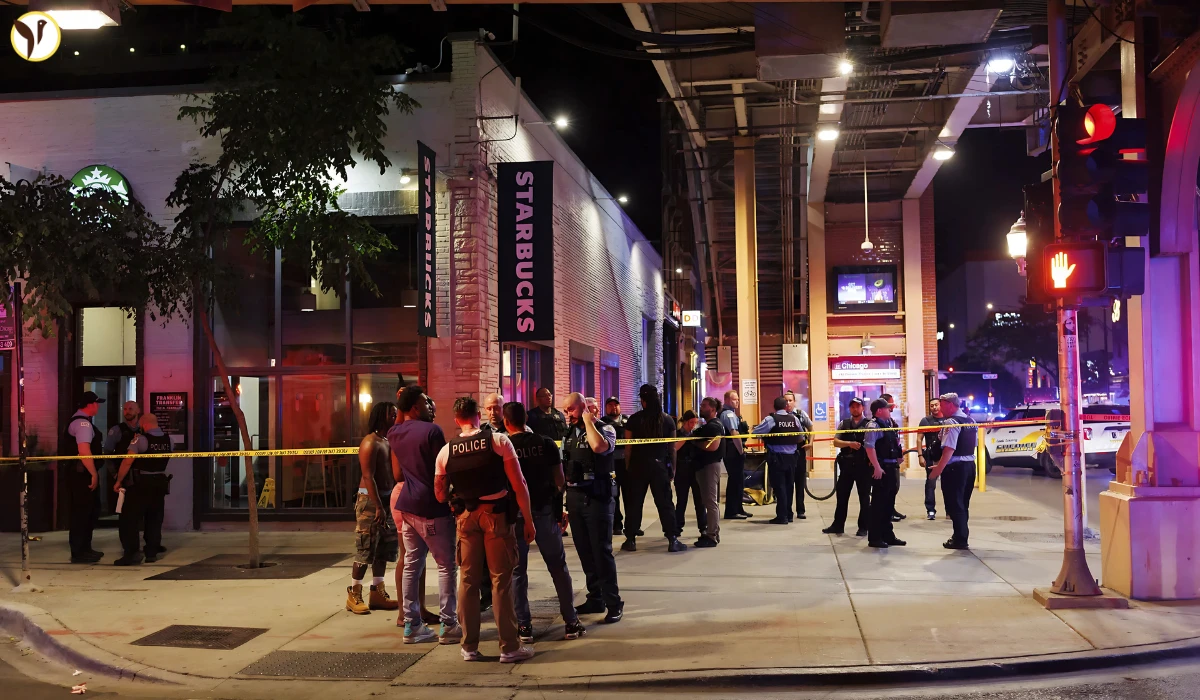Shortly after 11 p.m. Wednesday, a dark SUV drove past the entrance to Artis Restaurant & Lounge, located on West Chicago Avenue. Gunfire rang out into a crowd of people leaving an album release party. Chaos ensued. Four lives were taken instantly. Fourteen other lives were injured. The night had been meant for celebration, and instead a moment turned into tragedy.
Witnesses described a barrage of bullets. There was screaming. Loved ones ran in different direction in confusion. Ambulances filled the street. It was an unreal scene; River North had never felt anything like this hands down, a neighborhood familiar with art galleries but no gunfire.
Heartache and trauma amid the crowd
Many of those struck were in their 20s and 30s. The dead include two men, 24 and 25, and two women whose ages haven’t been shared. Hospitals report several victims in critical condition:
- One woman shot in the mouth
- Another in the back
- Many more with serious injuries
Tensions rose outside nearby hospitals. Families frantically searched for missing friends. A mother cried out for her daughter's name in the chaos. One woman was seen hugging a bloodied friend, tears streaming down her face. Fear gripped the air—will the injured pull through?
Donovan Price, a local pastor described it as "the worst I have seen." People were all over looking for their phones, keys or anything to find their loved ones. The euphoria of the late-night turned to horror - and people will be carrying these memories for many moons.
New perspective: a disturbing trend
Prior incidents of violence occurred in the exact same spot. Someone was killed and others injured from a shooting exactly near the address in November of 2022 - the spot called, at the time, Hush Lounge. That establishment was closed by the city; Artis Lounge is now located at the site of Hush Lounge. Now that violence has again occurred brings up significant questions regarding safety protocols, crowd management, and whether venues in this block are prepared for violence.
City leaders need to ask, are local business effectively managing security? Should there local laws or regulations that develop better for late-night establishments? How can people be safe in places meant for culture, as opposed to carnage?
A voice of grief and resilience
A local on X (Twitter) wrote:
“River North used to feel safe. Now I’m hearing gunshots on the L and seeing crime tapes.”
4 #dead, 14 wounded in #Chicago mass shooting in Chicago’s River North neighborhood.:
— eri, Dr.Eng. (@elicit777_eri) July 3, 2025
Someone opened #fire into a crowd standing outside late on 2 July. pic.twitter.com/zybUPg2q7a
This is troubling— you know safety has been shattered in the neighborhood. But with that sadness has come a strong sense of community. People are coming together, people offering rides to hospitals, candlelight vigils to facilitate some healing.
What happens next feels tenuous
Police have stated that no arrests have yet to be made. They are examining video recordings, spent shell casings and witness interviews. Community outreach workers - known as violence interrupters - rapidly arrived and began assisting people that were injured and keeping them calm. Their swift response may have saved the situation from being even more horrific.
In the coming days:
- Expect increased police patrols in River North
- Authorities will urge residents with video or info to speak up
- Lounge owners may face new demands for tighter security
In the bigger picture, this shooting highlights an ugly truth: gun violence isn’t just a South or West Side issue—it can strike downtown, right in neighborhoods considered safe and upscale.
Why this matters, and not just for one night
This shooting should open our eyes. Nightlife districts around America are packed with energy, but sometimes without diversity of safety measures. If the city doesn't redesign the rules of the venues and the police officers don't find ways to hold offenders accountable, this shooting in this area is unlikely to be the worst of it.
The River North watershed, which has commercial, restaurant, and cultural implications, deserves the chance to heal, but healing all starts with recognizing the failure to enact change.









